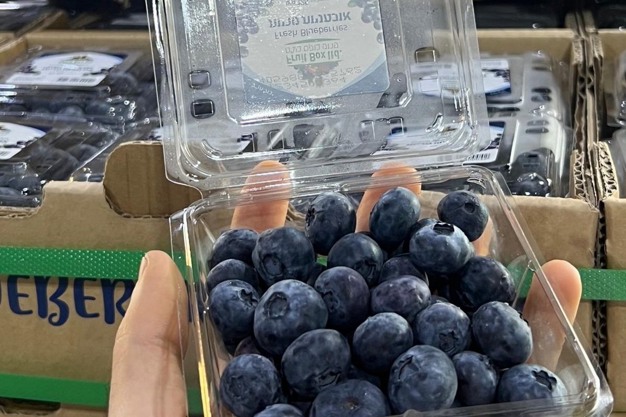How can you see there's a shortage of tomatoes in Israel? "It's when you buy a falafel, shawarma or kebab and see it's green instead of red. This means it is now stuffed with cucumbers instead of tomatoes," says Gabriel Raccah, CEO of Nativ Business Consulting, importers of fruit and vegetables into Israel from around the world. "The export ban from Turkey to Israel has a big impact on vegetable supply with a shortage of especially tomatoes, bell peppers and zucchini."

Raccah says there is a big opportunity for other supplying countries with market access to Israel to fill the gap. "There are a lot of opportunities to find new partners and new business due to the situation in Israel. The biggest challenge we have now is on the lack of tomatoes. The attacks on 7 October caused a lot of damage in our biggest growing area where all the greenhouses are situated. A lot of Thai workers that normally work in this area went back to their country. For a few months, there was no one working, while people volunteered to do the minimal work to keep the greenhouses going. After this, because there were no working hands, people planted less than in a normal year. On top of that, usually August is the month when we start to import tomatoes in big volumes from Turkey, including bell peppers and zucchini during the summer."
"Traditionally, there's less production in Israel in this period anyway. Now that Turkish suppliers can't export into Israel, it developed a very big gap in our market. There is a gap of maybe 2–3 months of short production for vegetables in general, especially on tomatoes, also California bell peppers, which is a challenge to supply. The fact that Turkey stopped exports to Israel, people were not ready for it," explains Raccah.
He says the other supplying countries cannot match the volume from Turkey. "The other countries which you can import from are not as big players as Turkey. If you call a Turkey supplier you can get up to 100 containers, you can't find them in Europe. It's very challenging, all the logistics is much longer when Turkey is 2–3 days away. We need between 8–10 days from Holland, it's not the best to have a good product and shelf life on this longer journey. Most of the European producers in the Netherlands, Belgium and Poland are all into programs with supermarkets, you can't find enough containers of supply from them."

Nativ Business Consulting is a private company that has been importing fruit and vegetables from all over the world into Israel for more than 25 years. The main items they import are apples and pears, mainly from Italy. France, the U.S. and Argentina supply too. "We import a lot of onions from Holland. We supply blueberries 12 months of the year. From South Africa we import table grapes, which normally start in December, depending on the season, until the end of March or start of April. We used to import blueberries from Argentina, and now since many other possibilities are slowly opening in Holland, Spain, Peru, Chile and Uruguay. These countries give us the possibility to have supply for 12 months. We supply supermarkets and wholesale across Israel. We cover most of the territory from the North to the South," states Raccah.

Potatoes shortage, price increase in Israel
He says potatoes are in short supply in Israel too, pushing up prices. "Normally, at this time, potatoes should cost 45c to 50c.Now they cost over 1 euro in wholesale, a big increase. This is because of two reasons, firstly the producer has a very good export market with good prices in Europe where they sent a lot. They forgot that they have to supply the local market, while in general there was a production shortage this year too. Many potatoes fields were destroyed due to the war. Potatoes are missing, quite a bit of everything is missing in Israel. All vegetables in general are expensive, the market is very high."
He says the only solution is to source from Mediterranean countries that are very close to Israel. "We started loading from the Netherlands, but we need 20 containers per week, but can only find one or two containers. The Dutch are all in the programme business. Maybe we can find someone that can supply a couple of containers of vegetables to send to us, and develop a weekly volume, " says a hopeful Raccah.
For more information:
Gabriel Raccah
Nativ Business Consulting
Tel: +972-528-976940
graccah@gmail.com
